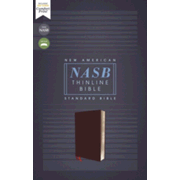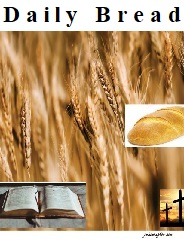Asaph, the director of music in the temple worship during the period of King David, wrote Psalm 73. Psalm 73 tells of Asaph’s struggle with envy, doubts, and his faith in God. In his struggles, the psalmist reaffirmed his trust in God. He concluded that only those who put their trust in God will find eternal life and eternal peace.
When Asaph was troubled by the fate of the ungodly (Psalm 73:1-12), he wrote the dominant pronoun as “they.” When he describes his own frustrated thinking leading to the resolution (Psalm 73:13-17), the dominant pronoun is “I.” When he finds a resolution to the problem (Psalm 73:18-22), the dominant pronoun is “You,” in the sense of God. When He proclaims the assurance of his faith and fellowship with God (Psalm 73:23-28), the dominant pronouns are a mixture of “You” and “I.”
Temptation, Envy, and Discontent
Asaph found the temptation and the working of envy and discontent very painful. But if God’s grace were not sufficient, then God would not suffer His people to be tempted. God not only saves them from harm, but He makes them gainers through it.
Asaph declared both that he was with God, and that God was with him. It wasn’t enough for Asaph to know and to say that God was with him; he also had to confess that he was with God.
God Always Offers You Guidance
Asaph begins by looking at his present blessings. The structures of life around us — the people, loved ones, our jobs, our security — all these can change suddenly, even unalterably.
With a new perspective gained at the house of the Lord, Asaph knew that God would guide him in this life and ultimately receive him to glory.
Asaph expected God to guide him with His counsel. He expected to hear God’s wisdom and receive guidance through it. He didn’t expect to be guided primarily through feelings, circumstances, or experiences, but to be guided through counsel.
Asaph also understood the faithful expectation of an afterward of glory. This expectation is a deliberate contrast with the end of the wicked mentioned in Psalm 73:17-19. As a godly man, Asaph recognized his future eternity and the wicked will have quite a different afterlife.
The Comfort of God’s Intimate Presence
Asaph wrote that God guides him while he is on this earth. And afterward, God will take him into glory – that is into heaven.1 The majority of Bible scholars hold that Psalm 73:24 means that at death the righteous will be received into the presence of Yahweh and will dwell in His Glory.
God exercises sovereign rule over the destinies of the saved and the unsaved. He will bring the believer through this life to glory (Ps. 73:24)2
Both the Old and New Testaments present this eschatological manifestation of God’s glory as the believer’s hope and goal. The clearest of the Old Testament references this eschatological fate is found in Psalm 23:24. This promise of future blessedness is God’s answer to the psalmist’s complaint and despair at the apparent good fortune and prosperity of the wicked.3
Purgatory
Catholics believe in a state after death called purgatory. It comes from the word “purge”, to cleanse or get rid of sin. Most people are not bad enough to go to hell but not good enough to go straight to heaven, as they have sinned in their lives on earth.
Purgatory is a state of purifying, a time of cleansing and preparation to enter heaven. St. Paul used the image of fire in his first letter to the Corinthians which Catholics relate to purgatory
Only people who die with mortal sin go to hell. But no one can enter heaven with even the smallest sin. (Apocalypse 21:27) Note: the book of Apocalypse does not exist in protestant bibles. It is in the Catholic Apocrypha books.
The length of time you must spend in purgatory depends on the number and seriousness of the sins for which you must make amends.4
Protestant Christians do not accept the idea of Purgatory and there is no mention directly of purgatory in the Bible. Catholics believe that they can help the souls in purgatory by praying for them.5
The best proof from the Bible that purgatory exists is in the Old Testament story of Judas Machabaeus. (2 Macabees 12:39-46) Note: the books of Maccabees do not exist in protestant bibles. They are in the Catholic Apocrypha books.4
The Justification for Purgatory
There is a long tradition of praying for the dead. Catholics can ask God for mercy to forgive the soul’s sins so that they can enter heaven and have eternal life with God more swiftly.
At the Second Council of Lyon in 1274, when the Catholic Church defined, for the first time, it’s teaching on purgatory, the Eastern Orthodox Church did not adopt the doctrine. The council made no mention of purgatory as a third place or as containing fire,6 which are absent also in the declarations by the Councils of Florence (1431-1449) and of Trent (1545-1563).7 Popes John Paul II and Benedict XVI have declared that the term does not indicate a place, but a condition of existence.
In Summary
Asaph, the director of music in the temple worship during the period of King David, wrote Psalm 73, telling of Asaph’s struggle with envy, doubts, and his faith in God.
Asaph begins by looking at his present blessings. Then with a new perspective gained at the house of the Lord, Asaph knew that God would guide him in this life and ultimately receive him to glory.
Asaph expected to hear God’s wisdom and receive guidance through it. Asaph also expected a future eternity of glory.
The majority of Bible scholars hold that Psalm 73:24 means that at death the righteous will be received into the presence of Yahweh and will dwell in His Glory.
Catholics, however, believe in a state after death called purgatory. Purgatory is a state of purifying, a time of cleansing and preparation to enter heaven. The length of time you must spend in purgatory depends on the number and seriousness of the sins for which you must make amends.
__________________ SHOP: ________________


NASB Comfort Print Thinline Bible, Red Letter Edition–bonded leather, burgundy
By Zondervan
The beloved 1995 Edition of the New American Standard Bible is now easier to read with Zondervan’s exclusive NASB Comfort Print® typeface. This edition of the NASB Thinline Bibles is available in a variety of sophisticated designs in a portable, easy-to-read format.
- The full text of the New American Standard Bible, 1995 Edition
- Exquisite, durable covers
- Less than one inch thick
- Double-column format
- Presentation page
- Two satin ribbon markers
- Words of Christ in red
- Exclusive Zondervan NASB Comfort Print 9 point type
Features:
____________________________________________
In conclusion, consider what the Daily Bread email message sent on 12/1/2008 and 3/3/2023 says,

Psalm 73:23, 24 – Nevertheless I am continually with You;
You have taken hold of my right hand.
With Your counsel You will guide me,
And afterward receive me to glory. (NASB)
God is here, alive, with us today and always. God enjoys being with His children, guiding them and directing them. In everything you do, with every task you must complete, especially the small mundane things, acknowledge Him, ask Him for His guidance, pray in the name of Jesus, and He will guide you.
You Can Receive The Daily Bread, for FREE.
To receive the Daily Bread email messages, free on Mon., Wed., and Fri., in your email inbox, just fill in the form below or send an email, and ask to be added, to jmikeh@jmhowington.com
References:
- Robert Martin-Achard and John P. Smith, From Death to Life, (UK, Edinburgh: Oliver and Boyd, 1960) pg.163.
- Henry C. Thiessen (revised by Vernon D. Doerksen), Lectures in Systematic Theology (Grand Rapids, MI: Eerdmans, 1981), pg. 123-124
- Millard J. Erickson, Christian Theology (Grand Rapids, MI: Baker Book House Company, 1985), pg. 998.
- Parish Priests, Instructions for Non-Catholics, (Des Plaines, IL; St. Mary Press, 1969) pg.48
- Saint Augustine, Handbook on Faith, Hope, and Charity (A.D. 421) 18:69, Cited in https://www.st-augustines.worcs.sch.uk/attachments/download.asp?file=894&type=pdf “purgatory”
- Karen Hartnup, ‘On the Beliefs of the Greeks’: Leo Allatios and Popular Orthodoxy (Boston, MA: Brill 2004), p. 2008.
- Pope John Paul II, Catechism of the Catholic Church #1030−1031, Commonly called the Catechism or the CCC, (United State Catholic Conference,1992)

Thank you very much for sharing, I learned a lot from your article. Very cool. Thanks. nimabi